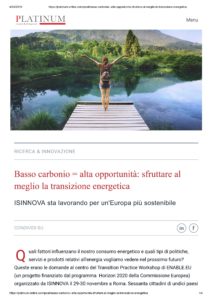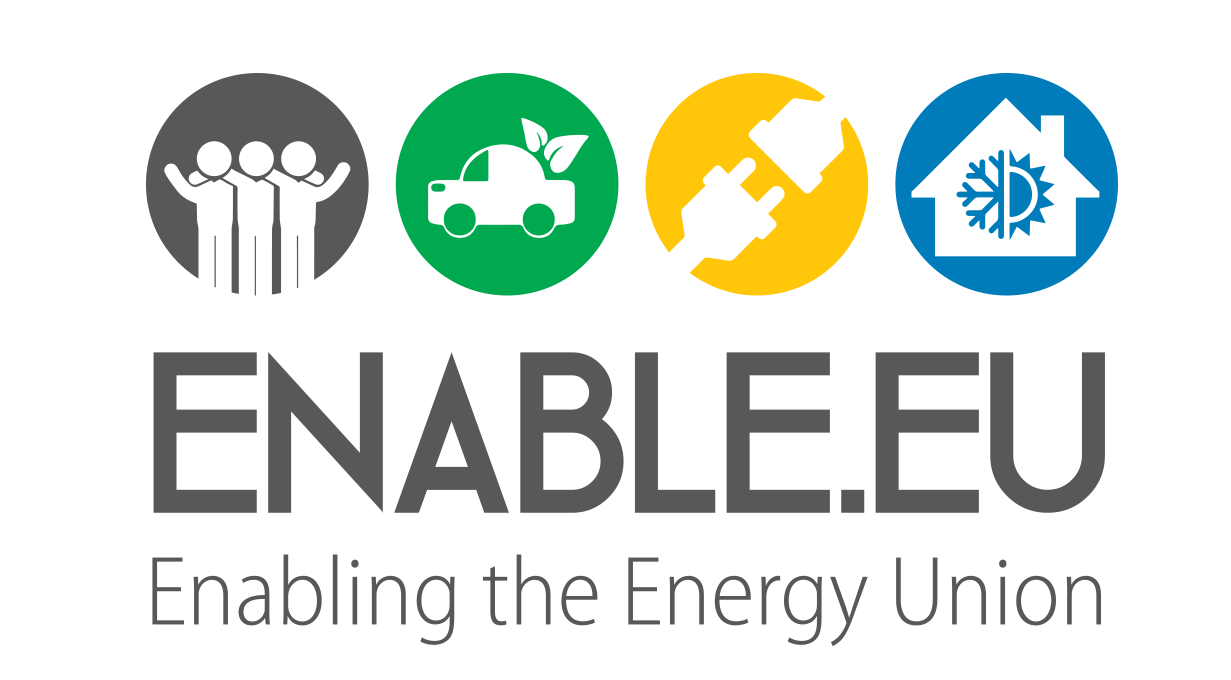
An article on November’s transition workshop was recently published in Premium magazine, a monthly publication affiliated with Sole24Ore that focuses on Italian business and innovation.
See the original article (in Italian)
Here is the full English translation of the article:
Low carbon = high opportunity: Making the most of the energy transition
What factors influence our energy use, and what kinds of energy-related policies, services and products do we want to see in the near future?
These were the questions at the heart of the ENABLE.EU (a project financed by the European Commission’s Horizon 2020 programme) transition practice workshop organised by ISINNOVA on 29-30 November in Rome. Sixty citizens from eleven European countries came to the workshop to discuss their current energy practices and their ideas for the future.
The workshop opened with an explanation of the objectives of the project – to understand and improve energy policy and to move away from an economy of fossil fuels. To do so, and to facilitate the transition to low carbon, we need to empower consumers to make better-informed choices, not only in transportation, heating & cooling and electricity, but also in terms of what they eat, what products they use, even the way they dress – choices that tend to be less visible in terms of their energy cost. But what influences these choices?
To find out, the participants were divided into workshops where they discussed their current energy needs and their sustainable practices. These energy-saving practices include the use of smart meters, heat pumps, and insulation, and using more active modes of transportation, such as biking and walking, along with car sharing and public transport. The participants then worked in groups to brainstorm future practices that would change how they use energy. They came up with a number of ways that decision makers – politicians as well as business and industry – could facilitate these changes. Alongside financial incentives for sustainable practices, they voiced a desire for new products and services, such as smart phones with much longer-lasting batteries, or smarter, more energy-efficient appliances, or apps providing real-time information on energy consumption. People want to know the true impact of the products and services they use, including the environmental cost of their production, transport, and disposal; product labeling should indicate these costs. They also felt strongly that companies should build their products to last longer – which policy makers could facilitate by requiring longer warranties – and that planned obsolescence should be eliminated.
Yet these ideas were only the tip of a rapidly melting iceberg – to learn more about the ENABLE.EU project and the energy transition, go to www.enable-eu.com. To find out how ISINNOVA is working towards a more sustainable Europe, go to www.isinnova.org.
